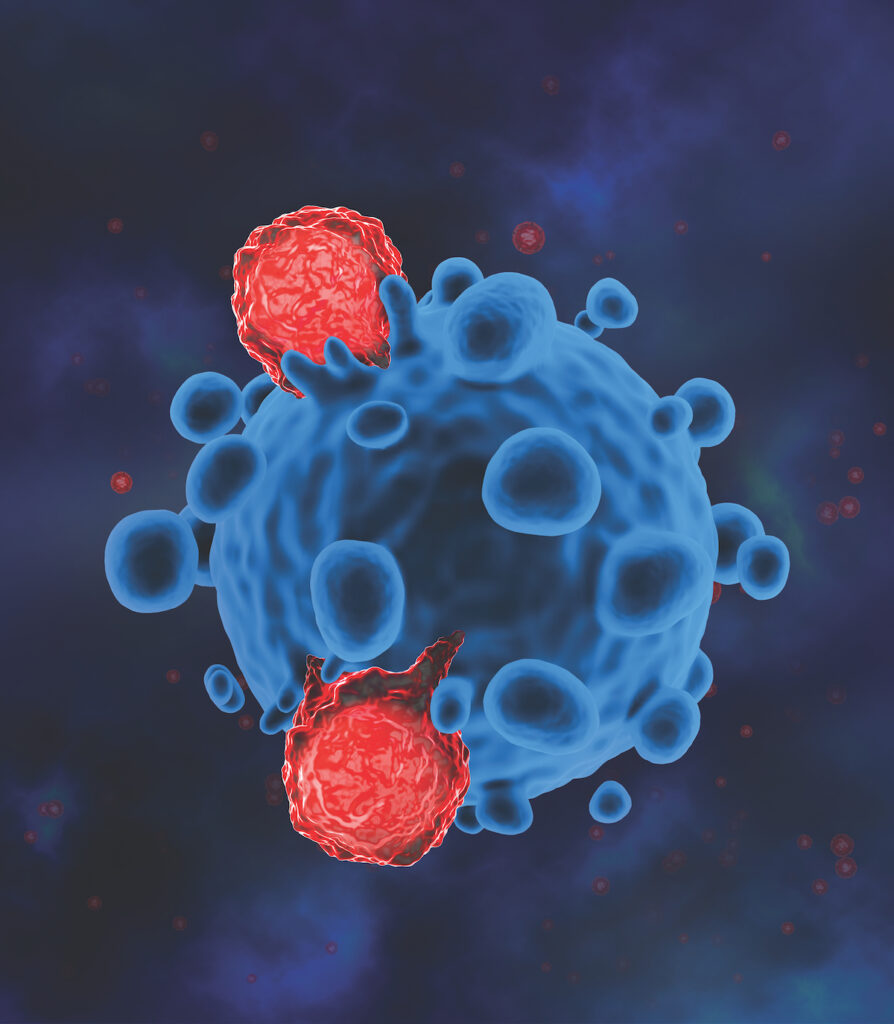
A new particle assembly technology created by Johns Hopkins engineers in partnership with experts from a biotechnology company is making it easier and more cost-efficient to produce viral vectors: engineered viruses that have been used to modify therapeutic cells to treat congenital and acquired diseases.
A team led by Hai-Quan Mao, professor of materials science and engineering and of biomedical engineering, and associate director for the Institute for NanoBioTechnology, in collaboration with scientists from bluebird bio, has developed shelf-stable and size-controlled DNA particles that not only improve the quality and consistency of viral vectors but also their yield.
“Viruses are experts at targeting and infecting specific cells, and viral vectors take advantage of this, but producing them is time-consuming and costly,” Mao says. “This work represents a great example of how we can partner with corporate collaborators to accelerate the translation of discoveries on the bench to the industry.”
Team members believe the new technology will find a wide range of applications in the manufacture of a variety of viral vectors for gene and cell therapy applications.




